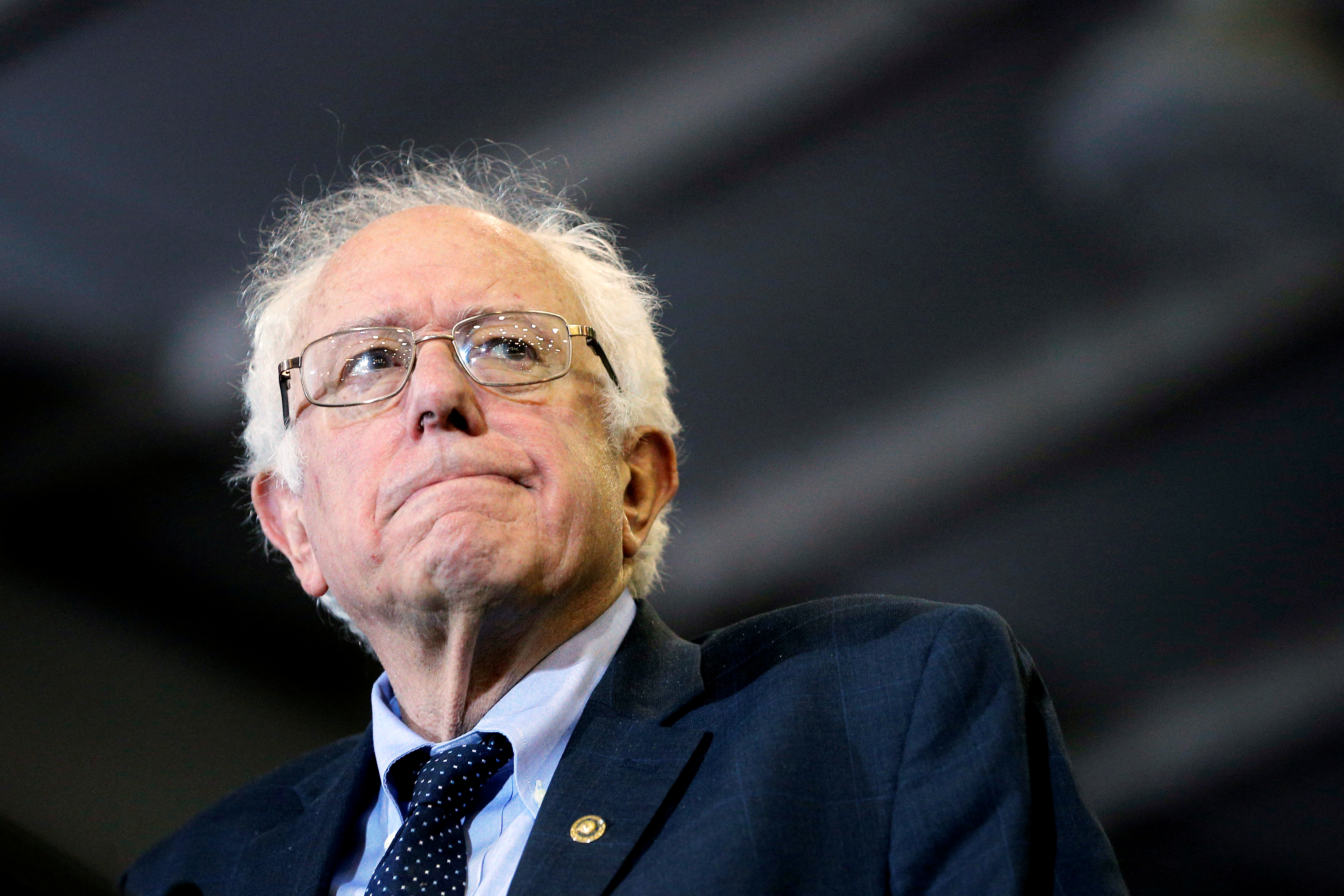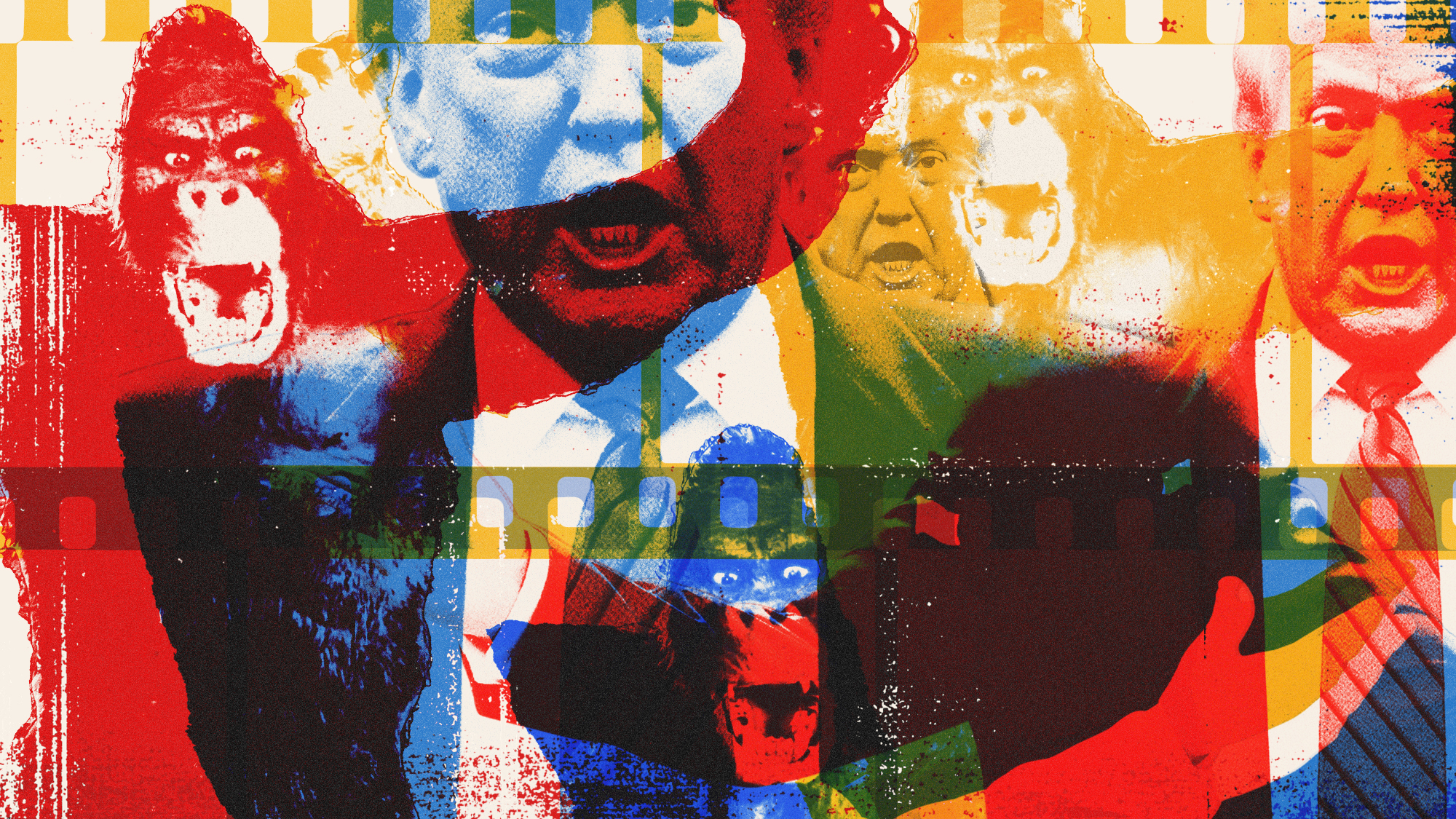How Bernie Sanders transformed American politics
Hillary Clinton may have the nomination, but the Democratic Party will be feeling the Bern for years to come


In the last round of Democratic presidential primaries, Hillary Clinton officially claimed the nomination. Bernie Sanders won North Dakota and Montana, but Clinton won in California, South Dakota, New Jersey, and New Mexico. Though Sanders said in a speech he would continue to campaign until the last primary in Washington, D.C., next week, since he cannot win a majority of pledged delegates at this point, it's over.
It's been hard to grasp what is actually happening in this primary. I don't think hardly anyone in the media class has much idea of what ordinary people are thinking and feeling, myself included. However, I am certain of one thing: The media coverage of the Democratic primary has been largely trash, dominated by endless petty bickering on websites and social media between rival factions of pundits and writers.
I must admit I've been part of that at a few points. But looking past all the hot takes and flame wars, it's pretty clear what Bernie Sanders represents: the moment when the American left wing got its mojo back.
The Week
Escape your echo chamber. Get the facts behind the news, plus analysis from multiple perspectives.

Sign up for The Week's Free Newsletters
From our morning news briefing to a weekly Good News Newsletter, get the best of The Week delivered directly to your inbox.
From our morning news briefing to a weekly Good News Newsletter, get the best of The Week delivered directly to your inbox.
The most obviously shocking part of the primary is the fact that it was close at all. Hillary Clinton had a greater head start than any non-incumbent presidential candidate in generations. She nearly won the nomination eight years ago, her husband is a popular former two-term president, and she's been a high-profile public figure for decades. That gave her the name recognition and party connections to lock up the endorsement of the vast majority of party elites — including the governor of Sanders' home state — before the primary even got started.
Sanders, by contrast, was basically a nobody a year ago. Committed liberals and political junkies knew who he was, of course: the most left-wing senator in the country from the second-smallest state in the union; a stubborn, wild-haired independent who was always mounting the doomed left resistance to atrocious Republican disasters or milquetoast Democratic compromises. For nine years in the Senate, and for nearly two decades before that in the House, he was largely restricted to trumpeting message bills and sneaking through tons of little amendments wherever he could.
For the American left, that's been the story since the mid-1970s: an endless rearguard action desperately trying to prevent the last shards of the New Deal from being smashed — sometimes by Democrats as well as Republicans. And while we still have Social Security and Medicare, and we recently got a suite of moderate improvements under Obama, in other areas (such as private-sector unions) the defeat has been nearly total.
The entire premise of Clintonite politics — which won the presidency twice for Bill Clinton, and is a very large part of President Obama's ideology — is that the old left is dead forever. Out with the unions and social insurance, in with Wall Street, markets, and fiddly little tax credits. And so, operating on the assumption that the 2016 primary would be basically similar to 2008, one could scarcely have imagined a more ridiculous challenger to Hillary Clinton.
A free daily email with the biggest news stories of the day – and the best features from TheWeek.com
I argued over a year ago that it was time for the media to stop treating Sanders with open contempt, but even I didn't think he'd make it a real contest. I thought he'd win a couple states, pick up a few hundred delegates, and leverage that for a concession or two at the national convention. It looked like a classic message campaign.
But it turns out the political tectonic plates have been shifting under everyone's feet. Sanders' aggressive platform of single-payer health insurance, tuition free public college, a $15 minimum wage, a steep carbon tax, a big expansion of Social Security, and $1 trillion in new infrastructure spending drew enormous interest. His rumpled, stubborn old guy affect proved oddly resonant in an age where politicians are typically focus-grouped within an inch of their lives. He very quickly began drawing the biggest crowds of any candidate, largely young people who have come of political age in the worst economic environment since the Great Depression.
Sanders himself seemed rather wrong-footed by the attention at first. He had to move quickly to shore up several weaknesses, first on racial justice, and second on foreign policy. He did both rather adroitly, particularly the former. He did so both on policy and with some splendid advertising — witness this ad, which beautifully humanizes a black man given a life sentence for murder at age 17:
In form and in ethical quality, it's the exact opposite of the infamously racist Willie Horton ad. I've never seen one better.
Ultimately Clinton's enormous head start proved too much to overcome. After a string of crushing victories in the South, she opened up a large delegate lead that Sanders whittled away but never closed. Still — Sanders won 22 states, and as a self-identified socialist. Almost certainly a more conventional left-winger, like Elizabeth Warren, would have beaten Clinton handily. The fact that Clinton had to fight like the devil to beat back such an unusual challenger has indicated to the rising generation of politicos that Sanders' politics are where the rising millennial generation — with every election a greater fraction of the electorate — can be got.
Sanders has even destroyed the conventional wisdom on campaign contributions, which holds that politicos must spend several hours per day bowing and scraping before rich people to get enough money to run a serious campaign. He raised over $207 million, almost all of it from small donations.
The left will continue to be somewhat in the wilderness during a Clinton presidency. But the writing is on the wall for milquetoast liberalism. The future of the Democratic Party will not much look like Bernie Sanders, but it will sure sound like him.
Ryan Cooper is a national correspondent at TheWeek.com. His work has appeared in the Washington Monthly, The New Republic, and the Washington Post.
-
 Can anyone stop Donald Trump?
Can anyone stop Donald Trump?Today's Big Question US president ‘no longer cares what anybody thinks’ so how to counter his global strongman stance?
-
 How space travel changes your brain
How space travel changes your brainUnder the Radar Space shifts the position of the brain in the skull, causing orientation problems that could complicate plans to live on the Moon or Mars
-
 How Iran protest death tolls have been politicised
How Iran protest death tolls have been politicisedIn the Spotlight Regime blames killing of ‘several thousand’ people on foreign actors and uses videos of bodies as ‘psychological warfare’ to scare protesters
-
 The billionaires’ wealth tax: a catastrophe for California?
The billionaires’ wealth tax: a catastrophe for California?Talking Point Peter Thiel and Larry Page preparing to change state residency
-
 Bari Weiss’ ‘60 Minutes’ scandal is about more than one report
Bari Weiss’ ‘60 Minutes’ scandal is about more than one reportIN THE SPOTLIGHT By blocking an approved segment on a controversial prison holding US deportees in El Salvador, the editor-in-chief of CBS News has become the main story
-
 Has Zohran Mamdani shown the Democrats how to win again?
Has Zohran Mamdani shown the Democrats how to win again?Today’s Big Question New York City mayoral election touted as victory for left-wing populists but moderate centrist wins elsewhere present more complex path for Democratic Party
-
 Millions turn out for anti-Trump ‘No Kings’ rallies
Millions turn out for anti-Trump ‘No Kings’ ralliesSpeed Read An estimated 7 million people participated, 2 million more than at the first ‘No Kings’ protest in June
-
 Ghislaine Maxwell: angling for a Trump pardon
Ghislaine Maxwell: angling for a Trump pardonTalking Point Convicted sex trafficker's testimony could shed new light on president's links to Jeffrey Epstein
-
 The last words and final moments of 40 presidents
The last words and final moments of 40 presidentsThe Explainer Some are eloquent quotes worthy of the holders of the highest office in the nation, and others... aren't
-
 The JFK files: the truth at last?
The JFK files: the truth at last?In The Spotlight More than 64,000 previously classified documents relating the 1963 assassination of John F. Kennedy have been released by the Trump administration
-
 'Seriously, not literally': how should the world take Donald Trump?
'Seriously, not literally': how should the world take Donald Trump?Today's big question White House rhetoric and reality look likely to become increasingly blurred
